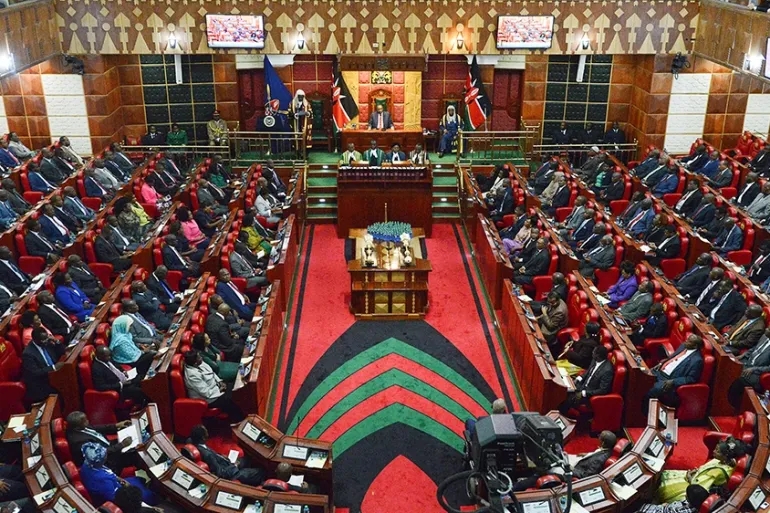What is sustainability?
Sustainability as understood in everyday use implies continuity and consistency. It also implies that what is considered sustainable is capable of preparing for, withstanding, and adapting to various changes.
Sustainability in business is thus no different. It means that business is capable of rising above environmental, social, and economic challenges such that it does not interfere with the very survival of the business. While this may seem like the general interest of every business, sustainability calls for more than just a look at the profit margins and the bottom line. It calls the business to pay attention to how it engages with the natural environment so as to reduce negative impacts and encourage better management of available resources.
Socially, a sustainable business will strive to maintain good relationships with its people including suppliers, customers, employees, the Government, lenders, owners, and the general public. This means conducting an ethical business that cares for more than just shareholders. Economically, a sustainable business will look at how it makes its profits i.e. quality of products, ethical business practices, fair trade etc.
That said, sustainability in business has been a long-running conversation that has seen larger businesses integrate Sustainability in their businesses. Unilever, Coca-Cola, Proctor, and Gamble, Nestle, Safaricom, KCB, BOC Kenya among others have run their businesses with Sustainability in mind. From water and energy efficiency systems to running plants on renewable energy to products for the base of the pyramid, these companies have pioneered a great deal in Sustainability.
Where Do Growing Businesses Fit In?
The question is: Can smaller, growing organizations then be able to mirror these titans and approach business differently?
The rise of social enterprise for one has introduced a new way of doing business. Turning a profit while meeting the needs of marginalized people or providing products that are environmentally friendly is how social enterprises work. Social enterprises, therefore, are well on their way to sustainable business.
Additionally, growing enterprises are by and large an extension of their owners and in that sense are able to better articulate the integrity and values of the owner. So much so that, should the owner firmly believe in doing right, then the business will be averse to graft, corruption, poor business practices, and unfair treatment of employees and customers. The values held by the owner will reflect how the business is conducted.
Given their size, growing businesses are quite flexible to change where the change can easily translate to good business. This means that they are best placed to adopt sustainable practices and want to follow in the footsteps of great business leaders. They, therefore, are best suited for changes in the industry as they are able to grow these new ideologies as they scale up.
The argument that adopting sustainable business practices is costly for growing businesses is partly true. Sustainability and building it into the business is a journey and even for the titans, it can take well over ten years. The benefits of Sustainability are enjoyed in the medium and long term. They are not immediately seen or appreciated. There must be a great deal of patience exercised. In any case, growing businesses could begin to venture into sustainability by ensuring compliance to laws, supporting local businesses, donating to charity, eliminating non-recyclable materials in packaging etc.
Adopting the sustainable development goals (SDGs)
The SDGs offer a guideline for businesses that wish to engage in Sustainability. They are a set of 17 goals agreed to by 193 world leaders in 2015 to guide the Sustainability Agenda of the world up to 2030. These 17 goals address the pressing issues in today’s world and what we need to address to create a better world for ourselves and future generations. The goals are interlinked, integrated, and universally applicable.
Sustainability requires a system of sorts. It needs an intricate balance in progressing people and economies while managing the environment. It ensures that the world as we know it today will be a better, efficient, and self-sustaining version of what we know, for years to come. For that to happen, a business must play its role in initiating and maintaining said sustainable development. Understanding why the SDGs matter to business requires a business case for it.
Why Should Businesses Care?
Business operates in an ecosystem
The success of society determines the success of business and vice versa. In a society riddled with poverty, failed healthcare, war or corruption, business will experience stunted growth. The achievement of the SDGs ensures that societies are stabilized and the prosperity of business is assured.
Shared purpose
The SDGs rally all of us towards the achievement of a common set of goals. We are expected to provide a unified response to this call. The SDGs are giving the business community a chance to work together with their civil society and Government counterparts in combating poverty and transforming our world.
Test of innovation and creativity
The survival of any business relies heavily on its ability to reinvent itself in the face of competition. To find that niche, secret recipe, technological advancement etc. that will put the business ahead of the pack. With this as part of the culture of business, the SDGs present a unique opportunity to give a fresh approach to addressing the needs of society? How can businesses rethink energy use? Financial prosperity for the bottom of the pyramid?
Stronger stakeholder relations
The SDGs are aligned to the Triple Bottom Line of business where sustainability relies on the pillars of People, Profit, and Planet. Within these pillars, the stakeholders’ needs are met and better relationships built over time. The needs of customers, suppliers, regulatory bodies, community, lenders etc are considered in the day-to-day running of the business. This leads to better business practice, improved accountability, and better governance and transparency.
Future Business Opportunities
Realizing the potential in the base of the pyramid presents an opportunity in untapped markets (Goal 1.) Realizing the potential of better farming and animal husbandry practices provides opportunity in food security
(Goal 2). Realizing the potential in reduced inequality between countries presents an opportunity in better international trade (Goal 10). Each goal gives business a chance to refocus on what matters now and in the future.
The SDGs are however interlinked and there are underlying connections in their application. For instance, to successfully implement SDG 1 of Ending poverty in all its forms, we must ensure that people have access to basic needs. Ensuring access to food (SDG2) and emergency health care (SDG3) must also be addressed as basic needs. Systemic issues that enable crippling poverty such as inequality between and within countries (SDG10) as well as corruption and bribery (SDG16) must be addressed together with SDG1.
SDG13 that looks to combat climate change does not stand alone. It is supported by SDG 6 to ensure safe use and reuse of water, SDG7 to ensure that we can access sustainable energy to power our lives, SDG11 to provide green and spaces in our cities, SDG12 to promote sustainable practices in how we use and make our products, SDG 14 to protect our waters and fish and SDG15 to protect our forests, soils and biodiversity.
For a country that is rich in entrepreneurial spirit boasting of 7.41 Million growing businesses (2016, Micro, Small and Medium Enterprises Survey by Kenya National Bureau of Statistics), the growing businesses sector offers the country a great deal of opportunity in building better businesses that care for the economic, social and environmental aspects of business.
An optimist looking to save the world, one business at a time.
You can reach Rosemary via email on [email protected]













